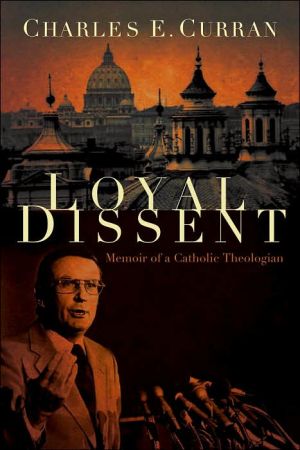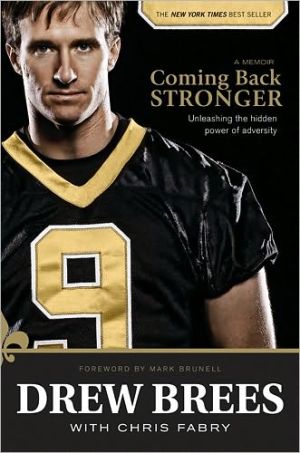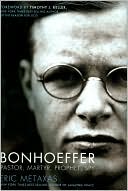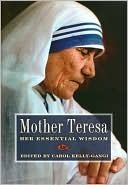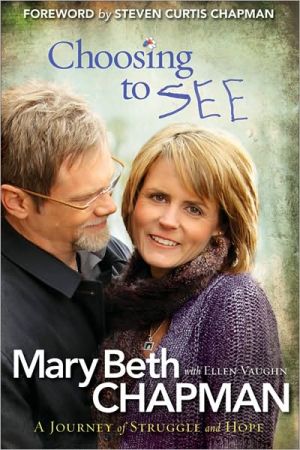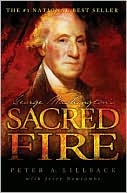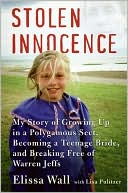Loyal Dissent: Memoir of a Catholic Theologian
Loyal Dissent is the candid and inspiring story of a Catholic priest and theologian who, despite being stripped of his right to teach as a Catholic theologian by the Vatican, remains committed to the Catholic Church. Over a nearly fifty-year career, Charles E. Curran has distinguished himself as the most well-known and the most controversial Catholic moral theologian in the United States. On occasion, he has disagreed with official church teachings on subjects such as contraception,...
Search in google:
Loyal Dissent is the candid and inspiring story of a Catholic priest and theologian who, despite being stripped of his right to teach as a Catholic theologian by the Vatican, remains committed to the Catholic Church. Over a nearly fifty-year career, Charles E. Curran has distinguished himself as the most well-known and the most controversial Catholic moral theologian in the United States. On occasion, he has disagreed with official church teachings on subjects such as contraception, homosexuality, divorce, abortion, moral norms, and the role played by the hierarchical teaching office in moral matters. Throughout, however, Curran has remained a committed Catholic, a priest working for the reform of a pilgrim church. His positions, he insists, are always in accord with the best understanding of Catholic theology and always dedicated to the good of the church. In 1986, years of clashes with church authorities finally culminated in a decision by the Congregation for the Doctrine of the Faith, headed by then-Cardinal Josef Ratzinger, that Curran was neither suitable nor eligible to be a professor of Catholic theology. As a result of that Vatican condemnation, he was fired from his teaching position at Catholic University of America and, since then, no Catholic university has been willing to hire him. Yet Curran continues to defend the possibility of legitimate dissent from those teachings of the Catholic faith--not core or central to it--that are outside the realm of infallibility. In word and deed, he has worked in support of more academic freedom in Catholic higher education and for a structural change in the church that would increase the role of the Catholic community--from local churches and parishes to all the baptized people of God. In this poignant and passionate memoir, Curran recounts his remarkable story from his early years as a compliant, pre-Vatican II Catholic through decades of teaching and writing and a transformation that has brought him today to be recognized as a leader of progressive Catholicism throughout the world. Library Journal This bluntly honest memoir is by one of the world's leading moral theologians who has continuously remained faithful to fundamental Catholic principles and priestly discipline despite "legitimate" dissent. Curran, a Roman Catholic priest and professor of human values at Southern Methodist University, has been a watchdog of Catholic moral theology for nearly 50 years. Unafraid to analyze critically the controversial moral issues of contraception, abortion, divorce, and homosexuality, he has frequently been at odds with the American hierarchy and the Vatican congregations. Readers here encounter both an autobiographical work and a reflective memoir chronicling Curran's evolving moral reasoning. He adroitly confronts established moral tenets with the brilliance of a scholar and the sensitivity of a seasoned pastor. Chapter by chapter, Curran articulates his tragic and liberating career in a style reminiscent of the Paschal Mystery. His book's title functions as a template for anyone daring enough to question critically and faithfully prevailing moral interpretations and address the issues of academic freedom in the Catholic academy. Recommended for academic and theological libraries.-John-Leonard Berg, Univ. of Wisconsin, Platteville Copyright 2006 Reed Business Information.
Preface\ The election of a pope is a very important event in the life of the Catholic Church. The papal election in April 2005 was more significant than most, coming after the twenty-six-year papacy of Pope John Paul II. On April 18–19, attention focused on the 115 cardinals in the Sistine Chapel as they voted for the new pope.\ During the conclave I realized that I was somewhat well acquainted with four of the electors, who had been schoolmates of mine in Rome. From 1955 to 1961 I did my seminary work in Rome, was ordained a priest there, and received two doctorates in theology. During those years I lived at the North American College, the seminary for students from dioceses in the United States, and later at the graduate house of the college for priests studying for advanced degrees. In those days I was well acquainted with the future cardinals but of course knew some better than others. With one of them I traveled extensively; we attended the Passion Play at Oberammergau in 1960 and visited the Holy Land together in 1961.\ Our paths diverged in later years. We all had advanced degrees, but I made the academy my home, while the others became involved in church administration. My writings and life as a Catholic moral theologian have made some modest contribution to the theology and life of the Catholic Church. I have served as president of three national academic societies— the Catholic Theological Society of America (CTSA), the Society of Christian Ethics (SCE), and the American Theological Society (ATS). In addition, I have received the highest awards from both the CTSA and the College Theology Society (CTS) for outstanding contributions to theology.\ I have written more than fifty books in the area of moral theology.1 But I think I know my weaknesses and limitations in terms of whatever contributions I may have made.\ I had even greater differences with the four future cardinals I knew while studying in Rome. In 1967 a strike at the Catholic University of America (CUA) succeeded in overturning the decision of the board of trustees not to renew my contract. All the archbishops in the United States, together with other bishops and a few laypeople, were members of the board at CUA. In 1968 I acted as the spokesperson for a group of Catholic scholars, ultimately numbering more than 600, who publicly recognized that one could disagree in theory and in practice with Pope Paul VI’s 1968 encyclical Humanae vitae, which condemned artificial contraception, and still be a loyal Roman Catholic.\ After Josef Ratzinger’s election as pope, I realized that my disagreement with these former schoolmates went deeper than I had supposed. They were probably quite pleased with the election of the new pope. I was not. In 1986, after a seven-year investigation and a personal meeting at the Vatican, Cardinal Ratzinger, in his role as prefect of the Congregation for the Doctrine of the Faith (CDF) and with the approval of the pope, declared that I was neither suitable nor eligible to be a Catholic theologian. Now Ratzinger is Pope Benedict XVI.\ Despite my differences with Josef Ratzinger and with the cardinal electors who had been my schoolmates in Rome, we share a common calling to the priesthood. Even more important, I share with them a strong commitment to the Catholic Church, despite what I consider its many shortcomings. When Commonweal, the lay-edited Catholic journal, asked me to do an article on my reaction to the new pope, I pointed out my major theological differences with Ratzinger and insisted on the need for a number of important reforms in the church today. I concluded, ‘‘As a Catholic Christian, I respect and love the office of the Bishop of Rome. I respect and love Pope Benedict XVI as he tries to carry out his most difficult of- fice. Like all Catholics, I pray daily for the wisdom that he needs. But, while conscious of my own shortcomings, I will continue to offer what I believe are constructive criticisms for the good of the pilgrim church.’’\ Friends have urged me for years to write my memoirs. I began this project a year before the election of Pope Benedict XVI, but not without some hesitation. Some parts of the story have already appeared in print. I am not the most scintillating of writers, having spent my life writing primarily for an academic audience. Nor have I kept a diary or careful records, so I will have to rely heavily, at times, on memory, which as we all know can play tricks. There is a further problem. Memoirs tend to be very self-oriented. In all honesty, I am aware that my story is only a small part of a much bigger one. I am also very conscious of how much I have depended on others and their help along the way. Can I tell the story without succumbing to the danger of overemphasizing my own role and function? Caveat lector.\ This book will try to explain how the church and moral theology have changed in the past fifty years and how I matured from an uncritical, dutiful, pre-Vatican II Catholic into a loyal dissenter who remains a committed Catholic.\ Copyright © 2006 by Georgetown University Press, Washington, DC. All rights reserved. Unless otherwise indicated, all materials in this PDF File are copyrighted by Georgetown University Press. Distribution, posting, or copying is strictly prohibited without written permission of Georgetown University Press.
PrefaceAcknowledgments\ 1. Beginnings\ 2. CUA: The Early Years\ 3. The Uproar over Humanae Vitae\ 4. Growing Tensions and Maturing Theology: The Seventies\ 5. Investigation and Condemnation\ 6. More Trials\ 7. Life after Condemnation\ 8. My Moral Theology\ 9. The Development of Theology in the Past Fifty Years\ 10. My Relationship to the Catholic Church\ NotesPublished Works of Charles E. CurranIndex
\ Library JournalThis bluntly honest memoir is by one of the world's leading moral theologians who has continuously remained faithful to fundamental Catholic principles and priestly discipline despite "legitimate" dissent. Curran, a Roman Catholic priest and professor of human values at Southern Methodist University, has been a watchdog of Catholic moral theology for nearly 50 years. Unafraid to analyze critically the controversial moral issues of contraception, abortion, divorce, and homosexuality, he has frequently been at odds with the American hierarchy and the Vatican congregations. Readers here encounter both an autobiographical work and a reflective memoir chronicling Curran's evolving moral reasoning. He adroitly confronts established moral tenets with the brilliance of a scholar and the sensitivity of a seasoned pastor. Chapter by chapter, Curran articulates his tragic and liberating career in a style reminiscent of the Paschal Mystery. His book's title functions as a template for anyone daring enough to question critically and faithfully prevailing moral interpretations and address the issues of academic freedom in the Catholic academy. Recommended for academic and theological libraries.-John-Leonard Berg, Univ. of Wisconsin, Platteville Copyright 2006 Reed Business Information.\ \
